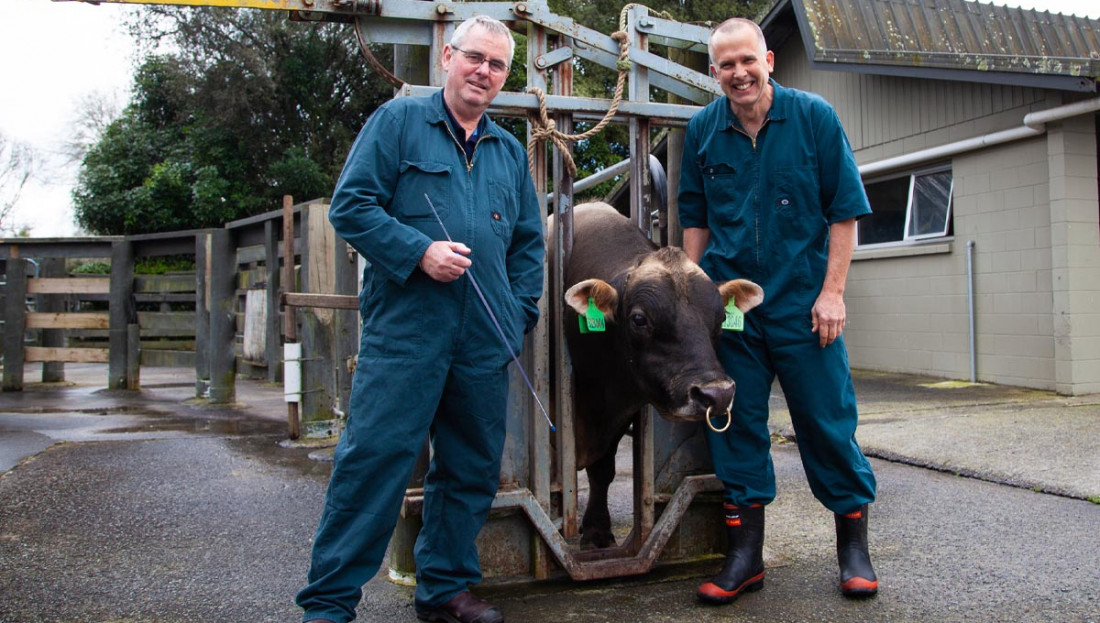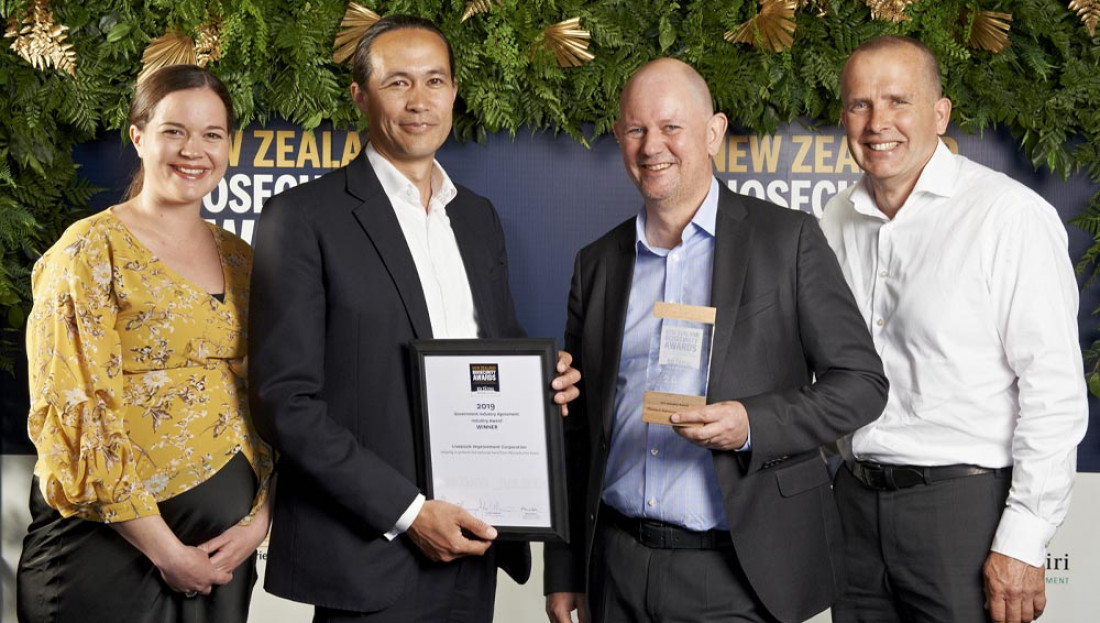Protecting the herd and New Zealand’s dairy reputation
Date
01 November 2019
When Mycoplasma bovis (M. bovis) was confirmed in New Zealand in July 2017, Livestock Improvement Corporation (LIC) rapidly instigated a massive, company-wide biosecurity response.
New Zealand dairy farmers rely on LIC’s artificial breeding (AB) programme to get cows in calf every season. LIC felt that if they failed to eliminate the risk of spreading M. bovis, they would fail New Zealand dairy farmers.
In the last 18 months, LIC has implemented a comprehensive testing regime for its bulls and introduced rigorous MPI-approved, biosecurity protocols across all its business operations, an din the process winning themselves the 2019 NZ Biosecurity GIA Industry Award.
They partnered with the Ministry for Primary Industries at farmer meetings to help address questions and invented a method of tonsil swabbing live animals. Tonsils are the most reliable place to detect M. bovis in the head of an animal prior to bacteria entering the bloodstream. They performed the test on all their bull calves, along with blood testing.
They overturned its business as usual to implement a stringent daily semen testing regime with results confirmed before any semen was dispatched. M. bovis has not been detected in any sample.
As New Zealand continues to grapple with M. bovis, LIC continues to support dairy farmers, protecting the reputation and value of the New Zealand dairy industry through effective, workable, best practice in biosecurity.

